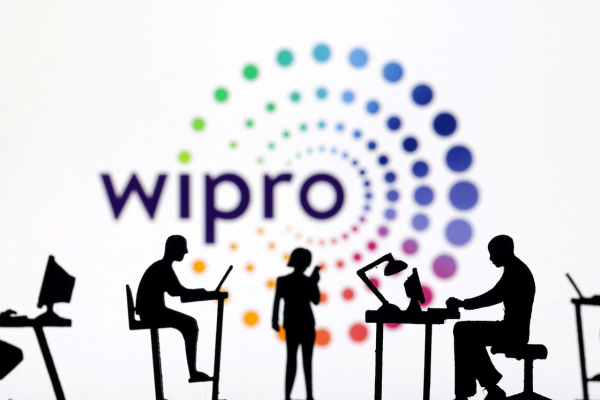Guiding the colocation decision

Nick Layzell at Telehouse Europe outlines the essential considerations for business success with colocation
Running an in-house data centre is an expensive business. While organisations benefit from full ownership of their infrastructure, there are many other factors they have to consider – such as procuring the right equipment, cooling and power, keeping on top of escalating costs, and ensuring compliance with security regulations.
In fact, recent Telehouse research found that 44% of decision-makers say compliance with privacy and data protection laws may impact their infrastructure decisions in the future.
What if something goes wrong in the process? Does the organisation have the in-house expertise to rectify the issue? If the source of the problem can’t be identified, it can lead to an even worse scenario with additional costs incurred from downtime. Given these complexities, the shift toward colocation services is gaining momentum and increasingly becoming a strategic commitment.
The same research by Telehouse revealed that 54% of organisations now prefer colocation services over on-premises solutions. However, like any strategic decision, colocation also requires thoughtful consideration and proactive solutions to ensure optimal outcomes.
Navigating cost challenges
One of the primary areas that businesses are often misinformed about when it comes to colocation is cost management. Colocation offers significant advantages by eliminating the need for expensive on-site IT operations, with options to house infrastructure in a shared or dedicated facility suited for every space and power need, as well as budget.
However, before choosing, it is always beneficial for organisations to carefully evaluate ongoing fees for space, power and cooling and align financial expectations with the colocation provider. Though, colocation helps to reduces energy expenses through data centre operators’ use of forward hedged energy rates, which stabilise costs and ensure clarity from the outset amidst price fluctuations.
Colocation data centres also provide businesses with a guaranteed service level agreement for uptime, thereby minimising the financial, productivity and reputational impacts of downtime. Overall, colocation offers more than just infrastructure savings. It is a cost-effective option for businesses with stable workloads, sidestepping the expense of scaling up cloud infrastructure for growth.
Scalability and security considerations
As needs change and opportunities for growth and market expansion arise, businesses need to ensure that their digital infrastructure can scale up easily, while not leading to costs spiralling out of control. The availability of physical space and power within a colocation facility can impact scalability and future expansion plans.
To address this challenge, businesses should work closely with their colocation provider to assess current and projected space and power requirements, ensuring adequate capacity to seamlessly accommodate future growth.
Apart from scalability, which refers to physical space and power, organisations also need to consider how their digital infrastructure solutions will meet their increasing interconnection needs. As businesses adopt AI, edge computing and IoT technologies, they will require high-performance IT infrastructure that can manage and store vast amounts of data.
They will also require advanced connectivity options with network, internet and cloud providers, as well as access to a wider ecosystem of suppliers and customers. Colocation offers a strategic advantage in this regard by providing access to robust, high-speed connectivity options and a diverse ecosystem of partners within the data centre environment.
This enables businesses to optimise their digital operations, enhance collaboration and capitalise on emerging technologies.
Another area which remains a top priority in the digital age, is security. Colocation introduces unique considerations regarding data protection and infrastructure security. Sharing a facility requires robust and multi-layered security measures, including comprehensive access controls, round-the-clock surveillance systems and adherence to industry-leading security standards.
If an organisation operates in an industry which is subject to stringent regulations, such as financial services or healthcare, the colocation facility must also be fully compliant. Businesses can mitigate security risks by selecting colocation providers that have implemented stringent security protocols to meet regulatory and data sovereignty requirements.
Mitigating skills shortages
In today’s competitive landscape, the demand for specialised IT skills often outpaces availability, posing a significant challenge for organisations managing in-house data centres. The right colocation provider can address this issue by providing access to a pool of highly skilled technicians and engineers at their facilities. These experts are dedicated to maintaining and optimising infrastructure, ensuring that businesses benefit from round-the-clock support and technical expertise without the need for extensive internal resources.
By leveraging the collective knowledge and experience of colocation providers, organisations can mitigate the impact of skills shortages, streamline operations, and focus on strategic initiatives that drive innovation and business growth.
This collaborative approach not only enhances operational efficiency but also enables businesses to adapt swiftly to technological advancements and evolving industry requirements, positioning them competitively in the marketplace.
Strategic solution for success
While the decision to adopt colocation services requires careful consideration of various factors, including cost management, scalability, security, and compliance, the benefits far outweigh the challenges. By partnering with a trusted colocation provider, businesses can leverage scalable infrastructure, robust security measures and guaranteed uptime to drive agility, innovation and sustained growth.
As organisations continue to navigate an increasingly digital landscape, colocation emerges as a strategic imperative, enabling enterprises to focus on their core business objectives while leveraging cutting-edge technology and infrastructure solutions. By embracing colocation, businesses position themselves for long-term success in a competitive and rapidly evolving market.
Nick Layzell is Customer Success Director at Telehouse Europe
Main image courtesy of iStockPhoto.com and klmax

Business Reporter Team
Most Viewed
Winston House, 3rd Floor, Units 306-309, 2-4 Dollis Park, London, N3 1HF
23-29 Hendon Lane, London, N3 1RT
020 8349 4363
© 2025, Lyonsdown Limited. Business Reporter® is a registered trademark of Lyonsdown Ltd. VAT registration number: 830519543





